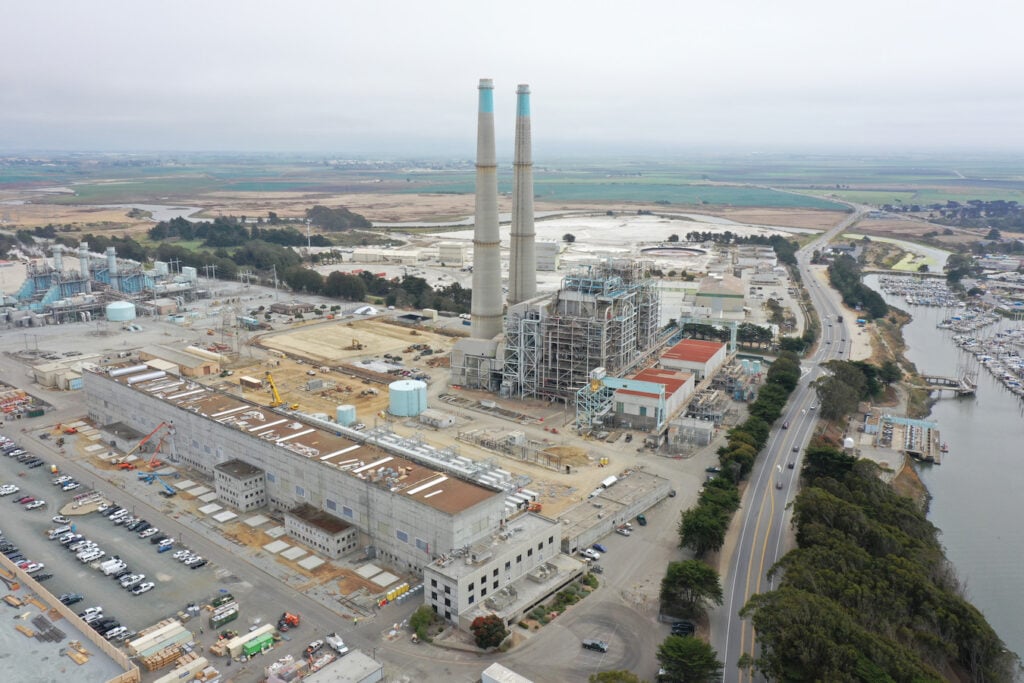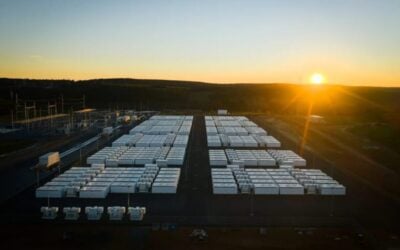
In the wake of the Moss Landing Energy Storage Facility fire, regional and state-wide California authorities have proposed or passed legislation tightening control of BESS projects.
On the afternoon of 16 January 2025, a fire broke out at Moss Landing Energy Storage Facility in Monterey County, California, US, prompting the evacuation of 1,200 to 1,500 local residents.
According to a press conference the following day by Monterey County authorities, a Level 2 activation of the County’s Emergency Operations Center (EOC) was enacted shortly after notification of the fire from nearby North County Fire Protection District.
Writing for Energy-Storage.news, Aaron Marks, energy storage consultant at Clean Energy Associates (CEA), said: “Outside observers have called the fire a ‘wake-up call’ and other BESS facilities in California have already seen added scrutiny in the immediate aftermath of the incident.”
Try Premium for just $1
- Full premium access for the first month at only $1
- Converts to an annual rate after 30 days unless cancelled
- Cancel anytime during the trial period
Premium Benefits
- Expert industry analysis and interviews
- Digital access to PV Tech Power journal
- Exclusive event discounts
Or get the full Premium subscription right away
Or continue reading this article for free
“Within the industry, though, the links to what happened at Moss Landing and the safety of energy storage as a whole are, at best, unclear.”
The California Public Utilities Commission (CPUC) issued a proposal to ‘enhance the safety of battery energy storage facilities’ as its staff began investigating the fire.
The regulator announced on 27 January that its proposal includes the implementation of Senate Bill 1383 (SB 1383), which requires the CPUC to implement and enforce standards for the maintenance and operation of electricity storage facilities ‘owned by an electrical corporation or located in the state.’
Orange County passes moratorium
In early February, the Board of Supervisors (BoS) of Orange County, California, enacted an emergency moratorium on the approval of any new BESS facilities (Premium access article) proposed for unincorporated areas of the county in order to protect the “health, safety and welfare” of its residents.
In a letter sent to the BoS on 22 January 2025, Vice Chair Katrina Foley requested the Board pass the emergency ordinance at its 28 January meeting in response to the Moss Landing fire, and other recent high profile BESS fires.
San Diego and Monterey counties push for more stringent rules
In recent meetings, the San Diego and Monterey County Boards of Supervisors both had items on their agendas related to energy storage safety.
On 25 February, the Monterey County Board of Supervisors met to discuss the recommendations from the Ad Hoc Committee established in response to the Moss Landing incident.
The committee recommended opposing future indoor battery storage facilities within the county, citing safety concerns. Additionally, the committee recommended requiring existing facilities in the county “to be brought up to the highest industry standards.”
This would mean that existing BESS facilities would need to be upgraded to include newer, potentially safer battery technology. The board has not taken action on these recommendations.
At the San Diego County Board of Supervisors meeting, also on 25 February, an item put forth by Supervisor Desmond to support Assembly Bill 303 (AB 303) was considered.
State-wide move
In the week following the Moss Landing fire, California Assembly member Dawn Addis introduced AB 303, the ‘Battery Energy Safety & Accountability Act,’ proposes removing rules that allow persons proposing battery energy storage facilities of 200MWh capacity or more to apply for certification with the California State Energy Resources Conservation and Development Commission, effectively bypassing the need for local authority permitting.
AB 303 would also require that BESS projects of that scale must be located at least 3,200 feet away from sensitive receptors, defined by the California Air Resources Board as children, the elderly, asthmatics and others at heightened risk of negative health outcomes from exposure to air pollution. Facilities would also be prohibited from construction in an environmentally sensitive site.
The San Diego County Board of Supervisors saw the California Energy Storage Alliance (CESA) and other organisations submit comments opposing AB 303. It was denied by a 3 to 1 vote.
AB 303 overview
Assembly Bill 205 (AB 205), signed into law by California Governor Gavin Newsom in 2022, increased the permitting authority of the California Energy Commission (CEC) to also cover battery storage facilities larger than 200MWh in capacity.
AB 303, which effectively looks to close CEC’s expanded permitting authority, will be subject to review by both houses of the legislature and the governor.
An overview of AB 303 by law firm Sheppard Mullin explains that:
“As currently drafted, AB 303 would apply to BESS facilities capable of storing 200 megawatt hours or more of energy. For such projects, the bill includes restrictive provisions that would:
- Limit where BESS facilities can be developed in California, including on ‘environmentally sensitive sites’.
- Prohibit BESS facilities within 3,200 feet of ‘sensitive receptors;’
- Exclude developers of BESS facilities — but not of energy storage facilities that use technologies other than battery storage — from applying to the California Energy Commission (CEC) Opt-In Certification Program under AB 205 (2022); and
- Mandate that the California Energy Commission deny all pending BESS projects that are currently under review as of the bill’s effective date.”
CESA says that AB 303 would “prejudge the outcome of the district’s work,” adding that the bill undermines state-identified objectives by “severely limiting the development of largescale battery storage projects” and “setting a precedent for exclusionary policies that could stall innovation and investment in the energy storage sector.”
Just today, we published an article about a solar-plus-storage project with a 4.6GWh BESS that has progressed through the CEC’s Opt-In programme, in which we included a roundup of all eight projects using it (Premium access).





